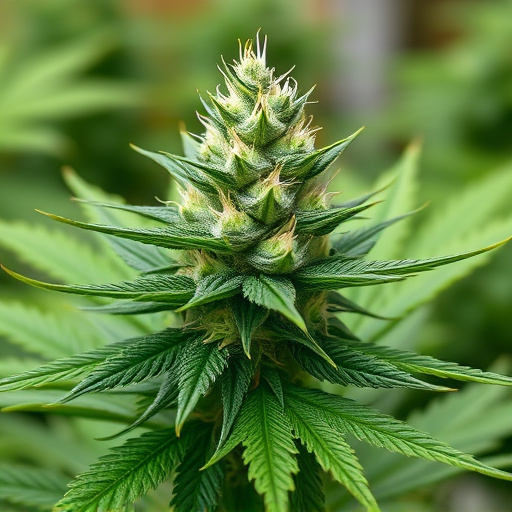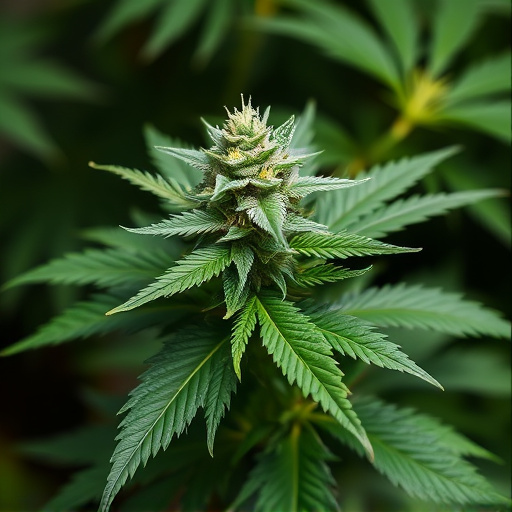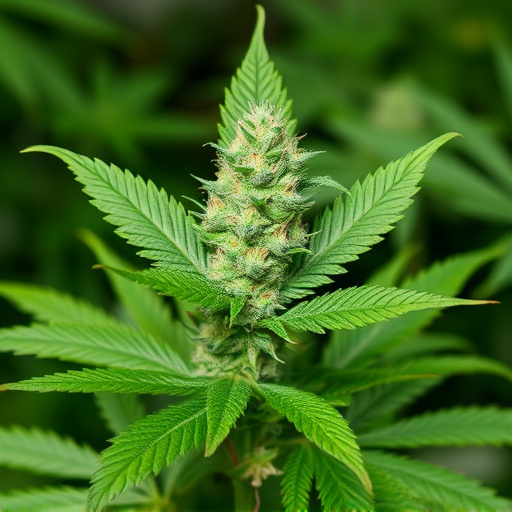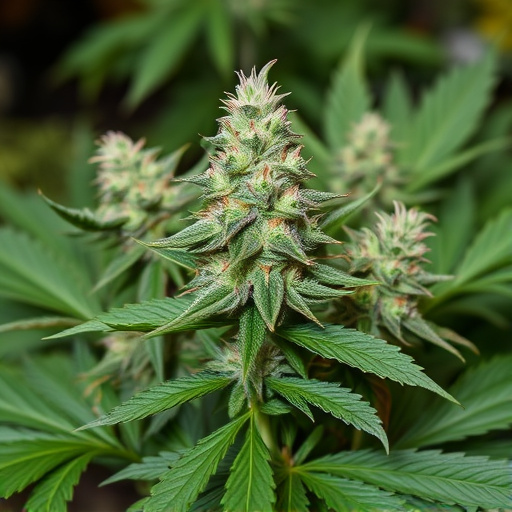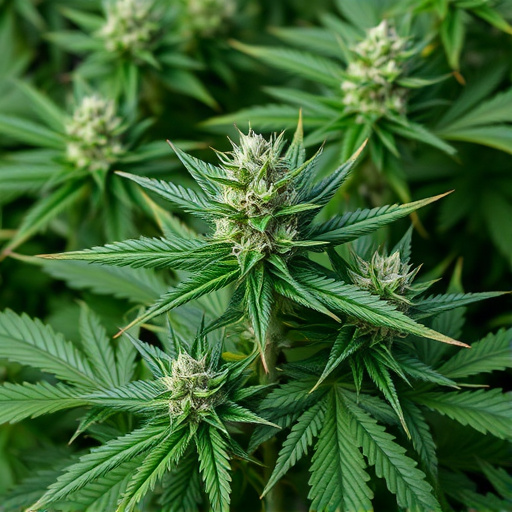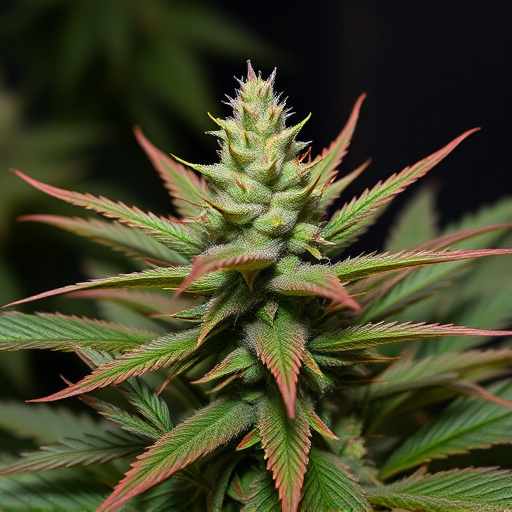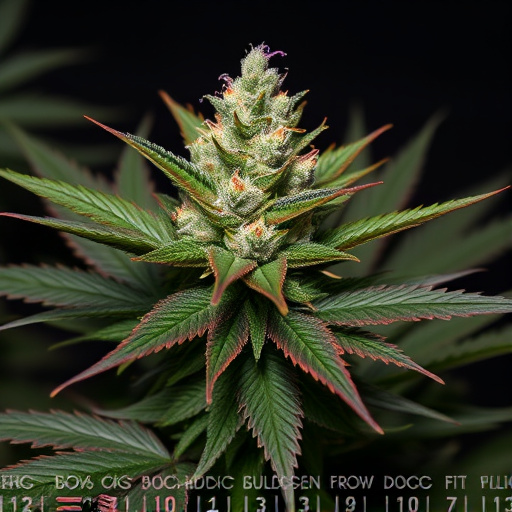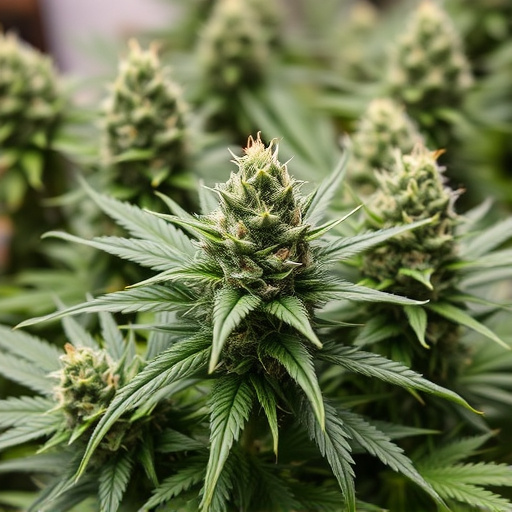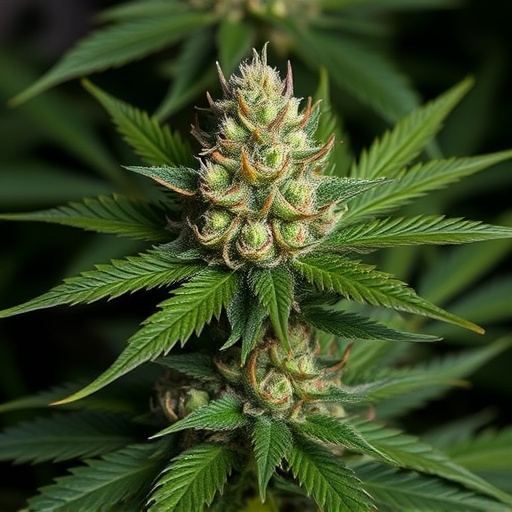Indica cannabis strains, popular for relaxation but high in terpene myrcene, can worsen respiratory conditions and cause coughing, breathing difficulties, disrupted sleep, increased anxiety, cognitive impairments, memory problems, and concentration issues. Regular consumption may lead to exacerbated mental health concerns like paranoia and psychotic episodes in vulnerable individuals. Physical side effects include dry mouth, red eyes, dizziness, increased heart rate, coordination problems, and short-term potency intensification from high THC strains. Long-term risks encompass respiratory issues, cardiovascular problems, and potential cognitive impairments linked to early exposure during adolescence. Users, especially those with pre-existing conditions or mental health concerns, are advised to consider these effects when choosing indica strains.
“Unveiling the potential risks associated with indica cannabis strains is essential for consumers seeking an informed understanding. This article delves into the complex world of health considerations related to these popular varieties. From mental health concerns to physical side effects, we explore the psychoactive properties that may impact users differently. By examining the long-term impacts, individuals can make conscious choices regarding their consumption. Understanding the risks is a vital step in navigating the growing availability of indica cannabis strains.”
- Potential Health Risks Associated with Indica Cannabis Strains
- Psychoactive Effects and Mental Health Concerns
- Physical Side Effects and Long-term Impacts
Potential Health Risks Associated with Indica Cannabis Strains
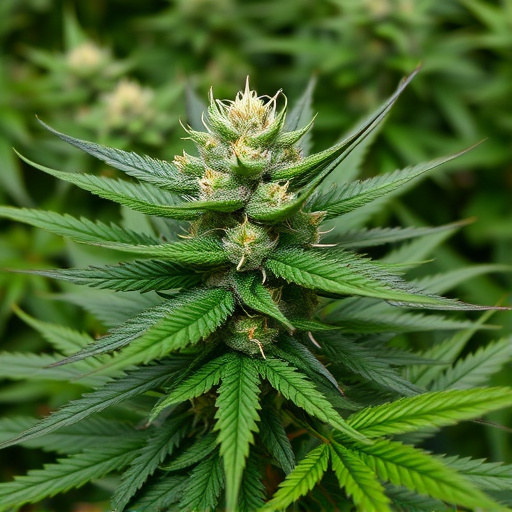
Indica cannabis strains, known for their relaxing and sedative effects, may come with potential health risks that users should be aware of. One significant concern is the impact on respiratory health. Indicas often have higher levels of terpenes, particularly myrcene, which can cause or exacerbate breathing issues like asthma or chronic obstructive pulmonary disease (COPD). Inhaling potent indica strains could lead to coughing fits, wheezing, and increased respiratory distress.
Additionally, these strains may contribute to cognitive impairments and mental health complications. Research suggests that regular consumption of strong indicas can disrupt sleep patterns, leading to insomnia or poor quality sleep. There’s also a heightened risk of anxiety and paranoia, especially in individuals prone to such conditions. The sedative effects, while appealing for some, could result in impaired judgment, memory problems, and difficulty concentrating if overindulged.
Psychoactive Effects and Mental Health Concerns
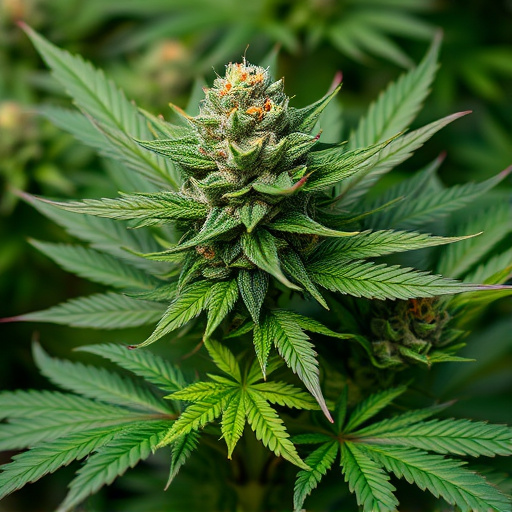
Cannabis flower, particularly indica strains, is known for its psychoactive effects, which can impact users’ mental states and perceptions. While some individuals enjoy the relaxing and mood-altering qualities, there are potential risks associated with this aspect of cannabis use. The primary concern lies in its effect on mental health, especially for those with pre-existing conditions or a history of psychological issues.
Psychoactive indica strains can induce feelings of euphoria, relaxation, and even heightened creativity. However, they may also trigger or exacerbate anxiety, paranoia, and psychotic episodes in susceptible individuals. Regular consumption has been linked to cognitive impairments, including memory and attention deficits, particularly in young users whose brains are still developing. Understanding these risks is crucial for consumers, especially when choosing specific strains, as some indica varieties are bred for more intense psychoactive effects, which may not be suitable for everyone.
Physical Side Effects and Long-term Impacts
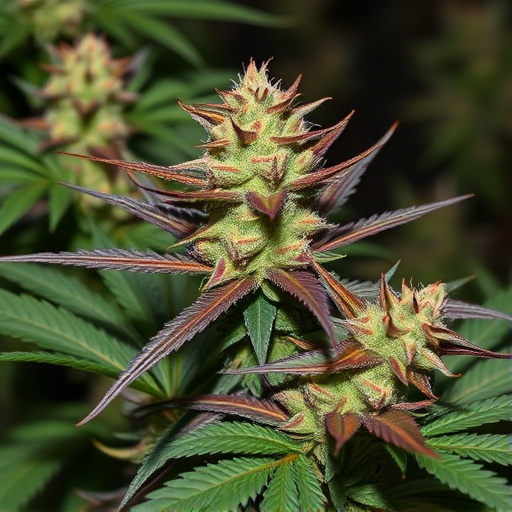
The physical side effects of cannabis consumption are well-documented, especially with regular and heavy use. Some common short-term impacts include dry mouth, red eyes, dizziness, and increased heart rate. More intense effects might lead to coordination problems, trouble remembering or concentrating, and even panic attacks in individuals prone to anxiety disorders. These immediate reactions are often more pronounced when consuming high-potency indica cannabis strains, which have higher levels of THC (tetrahydrocannabinol), the primary psychoactive compound.
Long-term use carries risks as well. Regular cannabis consumption has been linked to respiratory issues due to the inhalation of smoke or vapor. It may also contribute to cardiovascular problems, including increased blood pressure and potential heart rate disruptions. For young adults, early exposure to cannabis is a concern, as it may impact brain development. Research suggests that chronic use could lead to memory and cognitive impairments, making it essential to consider the potential long-term effects, especially with frequent consumption of indica strains known for their sedative properties.
While indica cannabis strains offer various therapeutic benefits, it’s crucial to be aware of potential risks. From mental health concerns like anxiety and paranoia to physical side effects such as dry mouth and red eyes, understanding these drawbacks is essential for responsible use. Additionally, long-term impacts on cognitive function and respiratory health necessitate further research and informed decision-making when consuming indica cannabis strains. Remember that moderation and proper dosage are key to minimizing risks associated with this powerful natural compound.


